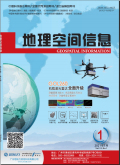地理空间信息2024,Vol.22Issue(8):15-22,8.DOI:10.3969/j.issn.1672-4623.2024.08.004
基于文献计量的中国水利遥感研究热点分析
Research Hotspots Analysis of Chinese Water Conservancy Remote Sensing Based on Bibliometric Method
摘要
Abstract
Over the past two decades,the widespread application of remote sensing technology in the field of water conservancy has provided an effective means to acquire data over large areas with high frequency and resolution,while the capability of multi-spectral and multi-source data fusion has become increasingly prominent.Aiming to explore the prospects of remote sensing technology in the water conservancy domain,through a visual analysis of a knowledge graph constructed from water conservancy remote sensing literature within the Chinese national knowl-edge infrastructure database over the past two decades,we identified the focal areas and major trends.The findings reveal that key remote sens-ing techniques,water-related disaster prevention and mitigation,urbanization process analysis,ecological environment conservation,the construc-tion of intelligent water conservancy projects,and contributions to rural revitalization strategies have emerged as focal points in water conservan-cy remote sensing research.Furthermore,there is a discernible trend towards the utilization of advanced technologies,such as unmanned aerial vehicles and deep learning algorithms,to augment the interpretative and application capabilities of remote sensing imagery.This advancement is anticipated to provide robust support for the development of intelligent water conservancy initiatives.关键词
水利遥感/智慧水利/知识图谱/CiteSpaceKey words
remote sensing technology/smart water conservancy/knowledge graph/CiteSpace分类
天文与地球科学引用本文复制引用
方喻弘,宋丽,肖潇,郑学东..基于文献计量的中国水利遥感研究热点分析[J].地理空间信息,2024,22(8):15-22,8.基金项目
国家自然科学基金长江水科学研究联合基金资助项目(U2240224) (U2240224)
湖南省重大水利科技项目(XSKJ2022068-12) (XSKJ2022068-12)
国家重点研发计划课题资助项目(2023YFC3209502、2023YFC3209503) (2023YFC3209502、2023YFC3209503)
长江科学院中央级公益性科研院所基本科研基金资助项目(CKSF2021485+KJ). (CKSF2021485+KJ)

